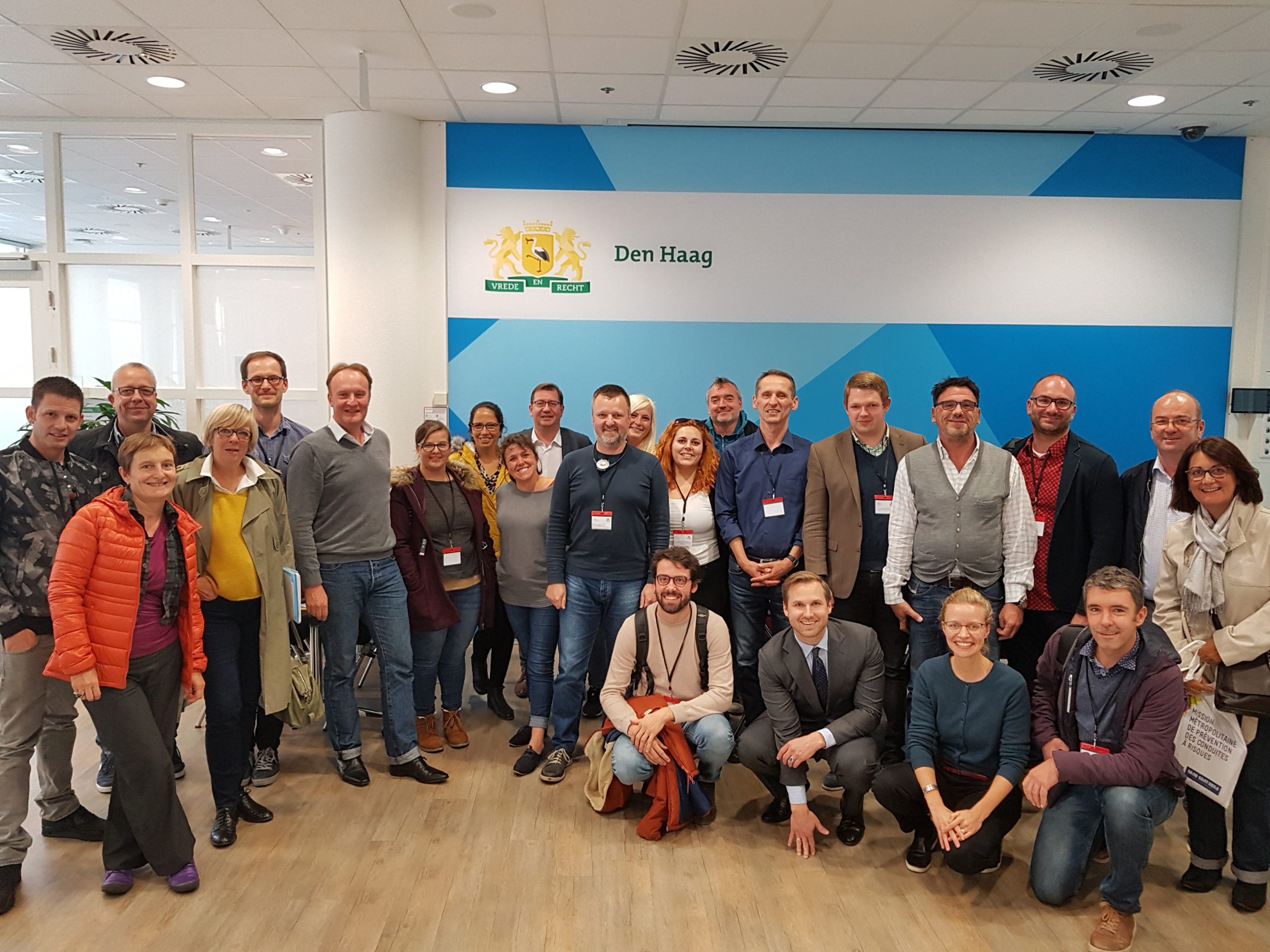
The Hague, Netherlands, October 2018 – What are the specificities of the Dutch drug policy? What services does the city of The Hague provide for drug users to reduce harm related to traffic and consumption of illicit drugs? How does the policy of tolerating recreational uses of soft drugs such as cannabis play out in terms of urban security? These and many other questions were addressed during the study visit conducted in the framework of the Solidify European project, which is led by Efus, in The Hague (NL), on 18-19 October.
————-
Twenty five representatives of the project consortium met for two intense days of exchange which included presentations on the Dutch drug policy and the establishment and development of Drug Consumption Facilities in the Netherlands, visits to two shelters for drug users and a coffee shop, as well an in-depth lecture and discussion on cooperation between municipal police forces and harm reduction services.
The Hague has been pioneering since the early 1990s a pragmatic approach focusing on the principles of harm reduction and expediency when it comes to drug policies. Applying a distinction between soft and hard drugs and tolerating the recreational use of the former, the city aims to empower drug users, diminish public nuisance, and focus law enforcement efforts on combating trafficking and organised crime.
> A successful strategy in reducing harm
Two drug consumption facilities were established in The Hague in 2005 and were initially successful. However, the number of users of these services declined in the following years, which led to their closure in 2014. This is due to a significant drop in the number of users of hard drugs in the city and the success of a “housing first” strategy which offers shelter to drug users who continue to live with their addictions. “Woodstock” and “Domus” are examples of such shelters, which house long-term users who are willing to improve their health and quality of life despite their addictions. Both shelters have developed strategies to foster positive relations with the neighbourhood and cooperate closely with the municipal administration and police services.
This strategy has proven to be largely successful in reducing drug-related harms and conflicts around drug consumption in public spaces. However, some front-line practitioners claim that drug consumption facilities, particularly a mobile unit, could be an additional asset and especially help to reach out to more volatile populations of users that do not always have access to shelters or harm reduction services.
The consortium also discussed a draft version of an assessment tool developed in the framework of Solidify which will allow municipalities to evaluate their needs and resources regarding the management of drug consumption rooms, particularly focusing on their impacts on public safety. This tool will be publicly available at the end of the project.
Started in January 2018 for a duration of two years, Solidify is led by Efus and gathers as partners the cities of Augsburg (DE), Essen (DE), The Hague (NL), Liege (BE), Lisbon (PT), Mannheim (DE), Paris (FR), Strasbourg (FR), the association Well Being and Development (Asociación bienestar y desarrollo) (ES), the Region of Brussels and Brussels Prevention & Security (Bruxelles Prévention & Sécurité) (BE), the Public Health Authority of Barcelona (Agencia de Salut Pública de Barcelona) (ES), and UTRIP – Utrip Institute for Research and Development in Health (Institut za raziskave in razvoj zavod) (SI).
>>> To learn more about the project, visit its page on Efus’ website.
| SAVE THE DATE: European Symposium “Low risk drug consumption rooms in Europe: Assessment and prospects” – 3 April 2019, European Parliament in Strasbourg (FR)
In connection with the study visit to Strasbourg organised in the framework of the EU-funded Solidify project on low-risk drug consumption rooms in Europe, this event, which is supported by the French regional and national health authorities, will enable exchange on the numerous European experiences, the different legal frameworks and their evolution, as well as innovations and future prospects.
|



